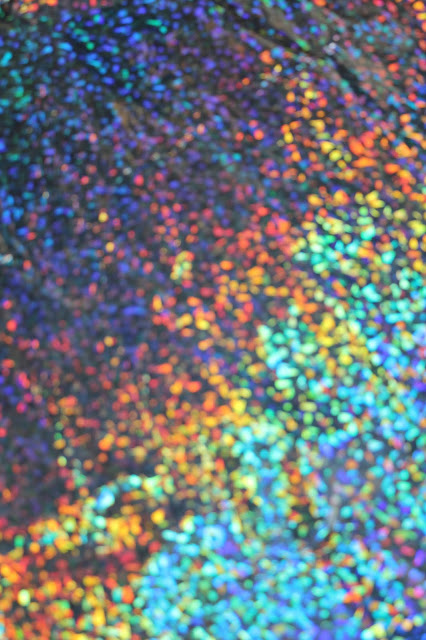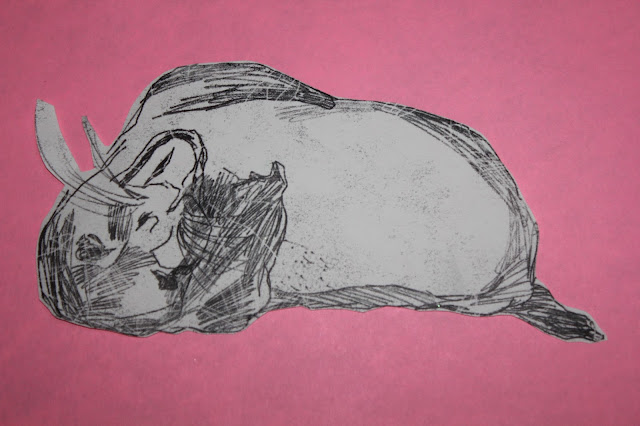Soap Operas and Cult TV shows are circular economies, if you will.
Part of some TV show’s ‘cultness’ is that they are open to ongoing aesthetic analysis as their history lengthens, and thus they are a reflection of people. Often they have collective audiences to enjoy experiencing and responding to the shows together, whether they sit together in the same room to watch them, or are part of a fan club of sorts, of simply enjoy the idea that others around the country or the world are all sitting down at the same time to watch the same show.
Fans of these shows feedback actively (buy memorabilia, endlessly drop quotes into conversation, take life lessons from them, make fan art/zines etc, re-watch and re-watch) and so the legacy of the TV show plays on its audience’s participation. It’s a feedback loop.
Let me say that again – the legacy depends on our feedback, or our response.
Now think of that in relation to planet earth.
The legacy of planet earth depends on our feedback into it… the way we inhabit our environment. Our response to it.
So the way we engage with cult TV shows and soap operas is a familiar behavioural process, and can offer an insight into a very similar behavioural process that ought to employ in our daily life in the environments of planet earth.
It’s a reciprocal, adaptive process.
The vision of people engaging in cult TV/soap operas can serve up a visual motif around which to construct a social message (possible even political) about care for the environment.
There is a social and psychological agenda in the assembled visuals within and surrounding a TV show. If dissected and analysed, those visuals can bring up a rallying cry of seductive social options for us. We are now presented with the assembled symbolic visuals of our social options. Soap operas are particularly good at this because they are ongoing and situated in everyday scenarios.
As part of my ‘film’ I will include a soap opera which all the characters are a fan of.
They will gather nightly under the baobab tree in the still heat of the desert twilight to watch it together. They will all hum the theme tune as the opening credits begin.
One of them drinks from her fan mug that had a cheesy picture of three of the soap opera’s characters emblazoned on it. One of them will continually quote familiar turns of phrase that they have come to hear regularly from one of the soap operas longest-running characters. This is twenty minutes of peaceful escapism for them at the end of each day.
Soap worlds are small, concentrated, local in audience mentality but also in content, people become obsessed, or then they’ve never heard of them! It’s a personal attachment and small scene. A local scale. Supportive and caring. Like a small-holding farm. They are sequential and cotton onto real life, and are there for you and keep going. Their broadcasting pattern is that of a serial, sustainable, small-dose one. They are open-ended. This is good as a metaphor for living locally and sustainably on earth.
Soaps are also super accessible and hold a special place in so many peoples’ timelines even if they claim to dislike them. Many of us remember watching them with a parent or grandparent as a child, idealising alongside older generations, all feeling their own on-screen counterpart’s resonance, and all learning. Soaps are familiar - a shared experience, nothing new, nothing risky, nothing uncomfortable or high-brow or demanding.
Soaps have a kind of ‘all under one roof’ vibe; there is something for everyone. They summarise and tie in family and community so easily. This is a vibe of care and sustainable relations; that which we ought to carry through into our environmental lives on earth.
And soap characters test the limits of personal human pomp, expansion and delusion safely, while keeping it all at arms length, and to act as a warning to us all.
But they can also demonstrate perfection in such wonderful light that we may feel ever more seduced, if it weren’t for the episodic trundling and thus predictable flaws of downfall, ruts and demise (and rebirth) of all characters depicted. Perfection is always saturated and counteracted in soap opera, making them all the more safe a viewing experience for out egos, and thus society and the planet.
As Pauline Kael said in her review of the film 'Funny Girl';
"In life, fantastically gifted people, people who are driven, can be too much to handle; they can be a pain. In plays, in opera, they're divine, and on the screen, where they can be seen in their perfection, and where we're even safer from them, they're more divine."
The aim of the soap opera as a decipherable motif in my ‘film’ is to mobilise a personal response in the viewing process and to invite thought. It will act as a sub-text, to be imaginatively extended by the viewers of my ‘film’ (which will be depicted through freeze-frame paintings, prints and drawings, some of which will include written elements in the form of dialogue or quotes, set direction or credits/opening sequences). The soap opera’s location and plot will not be evidently revealed, but will simply exist in a place-less place. This is because a place-less place-ness can be more relatable and subjective, allowing itself to be accessed through a viewer’s personal experience. Perhaps some attention will divert to the context of the artist (me) and the soap opera’s subjective scenarios can play on an inter-textuality with my other work – which is often about our place in the environment, and the power of imagination in learning to behave towards the planet (and our dreams/ambitions). Perhaps I can even rely further on inter-textuality made available to me by famous films or moments of environmental precarity/disaster/salvation such as Exxon Valdez.
An instance where a soap opera is used inside a film is the film ‘Joy’ (2016), where Russell creates a fanciful element to the film by using the ongoing viewing of a soap opera to mirror the ups and downs of the actual film’s main character. (the director)
Overall my ‘film’ and its soap opera ought to function as an immediate signifier experience (possibly embodied experience if senses can be appealed to, which I think I can do!) experience, which one will be invited to deconstruct. This invitation to delve for further meaning can be achieved by many means, namely using cinematic devices in the images to suggest continuing/preceding events outside of the frame, in order to get the viewer’s imagination to work. It can also be achieved by withholding one element of an otherwise full picture, or by offering a strong beginning of a narrative in an otherwise abstract image.
The audience will have to work, and will know that I have some sort of agenda.
It can be a dialectic experience, as indeed is every assemblage of characters in a soap opera or film.
*
Passion in cinema:
I also simply want to pay homage to the way cinema-going offers a reflection on our own lives and also an escape from it, so I will use the cinema setting/stage set and film techniques (subtitles, doubling, layering, multiple view points, panning, screen dimensions, lighting and colour, soundtrack etc) to allude to the persuasive power of cinema.
Passionate cinema is when you experience one of two things:
1. You feel so strongly, and the feeling lingers after you leave the cinema/film ends. You feel you need to call a certain person, do a certain thing, have everyone leave you alone so you can ride the feeling out.
2. You have a strong sensory journey, but the message/meaning/results is ambiguous and you need someone else to see it, either to help you understand, or for you to be able to ‘own’ that moment you don’t understand or are scared by in your showing it to someone else; your ‘knowing’ of it.
In an interview at the BFI Viggo Mortensen quotes another actor (it isn’t quite clear whom) on what makes a film epic…
- “I want people to wake up in the middle of the night and think that everything they are doing is wrong”.
That feeling of needing to enrich or change your life is amazing.
Drive is such a seductive quality in humans.
If a film can reinvigorate your own drive, then the world would be full of interesting, driven, accomplished, independent, free-thinking people. How wonderful.
***
Anyway here's some recent studio work in progress stuff/
Themes:
Film opening title sequence / monument to endangered species / blind monk seals of Hawaii / archipelagos / radio power / soap operas (clearly) / pop fashion trends / technology fascinates but obstructs our mobility and proactivity: - we become inert.
p.s listen to the podcast
Pop Culture Salvage Expeditions - find it on itunes or on the link. Great resource for artist activists, and of course via the theme of my beloved pop culture!
p.p.s It's Country2Country music festival this coming weekend in London and Glasgow, which i'm going to, so if ya fancy some country pop then listen to Kip Moore, Eric Church's new album, Hannah Aldridge and generally catch up on
Bob Harris's Country show on Radio 2. Especially
this episode with Thomas Rhett in session, he's great in convo with Bob and super interesting in his writing process.
Oh and I updated my artists statement recently, it was a bit waffley before....




















